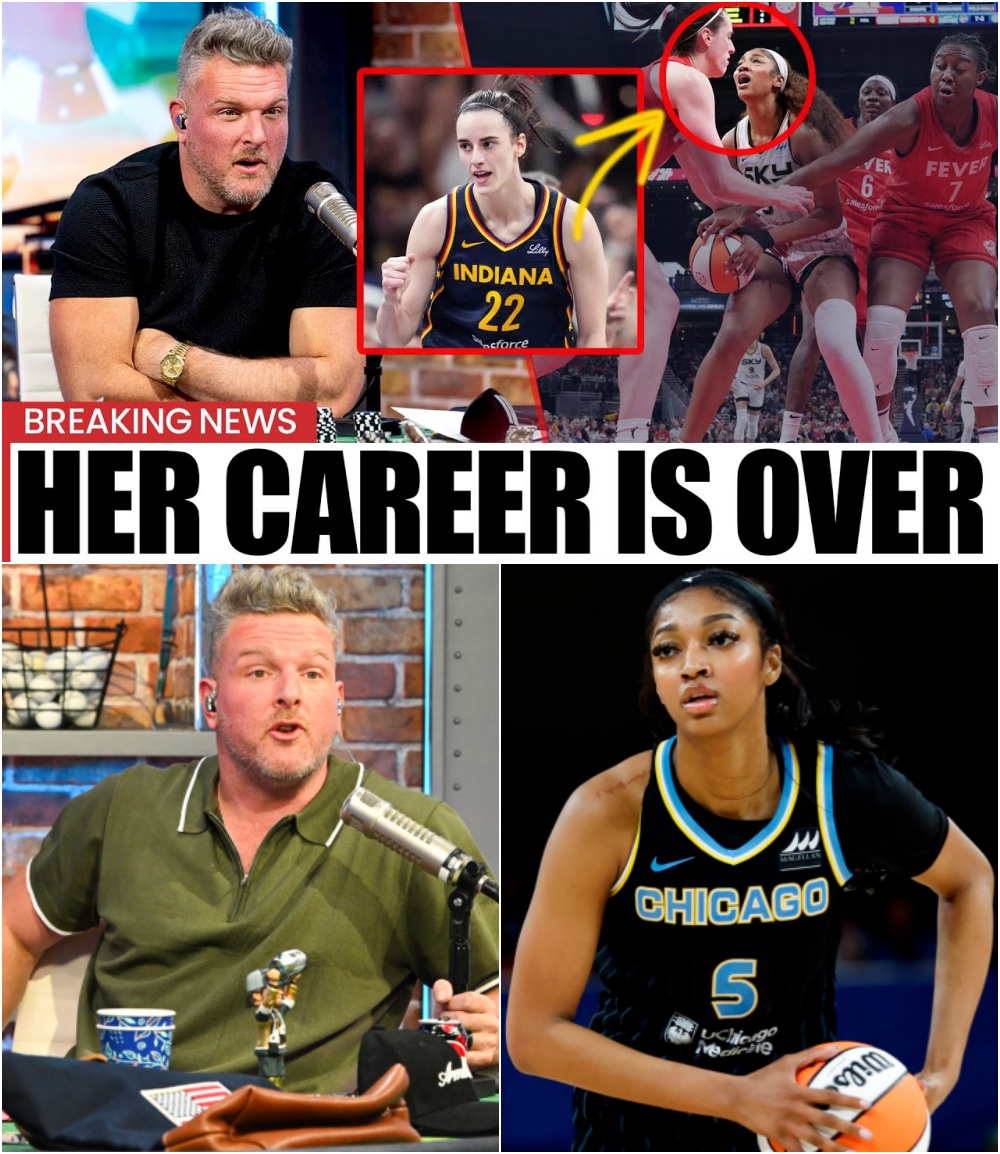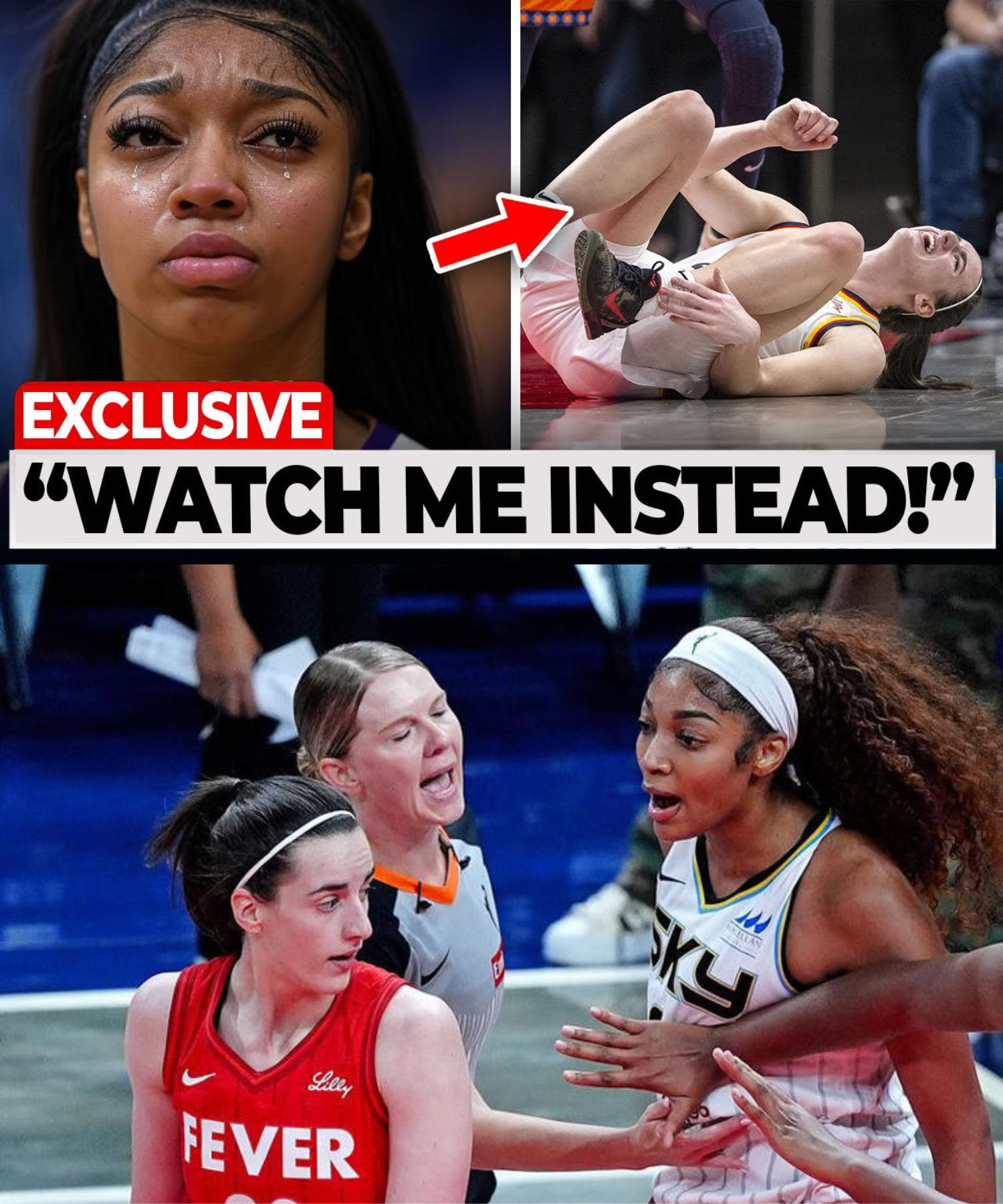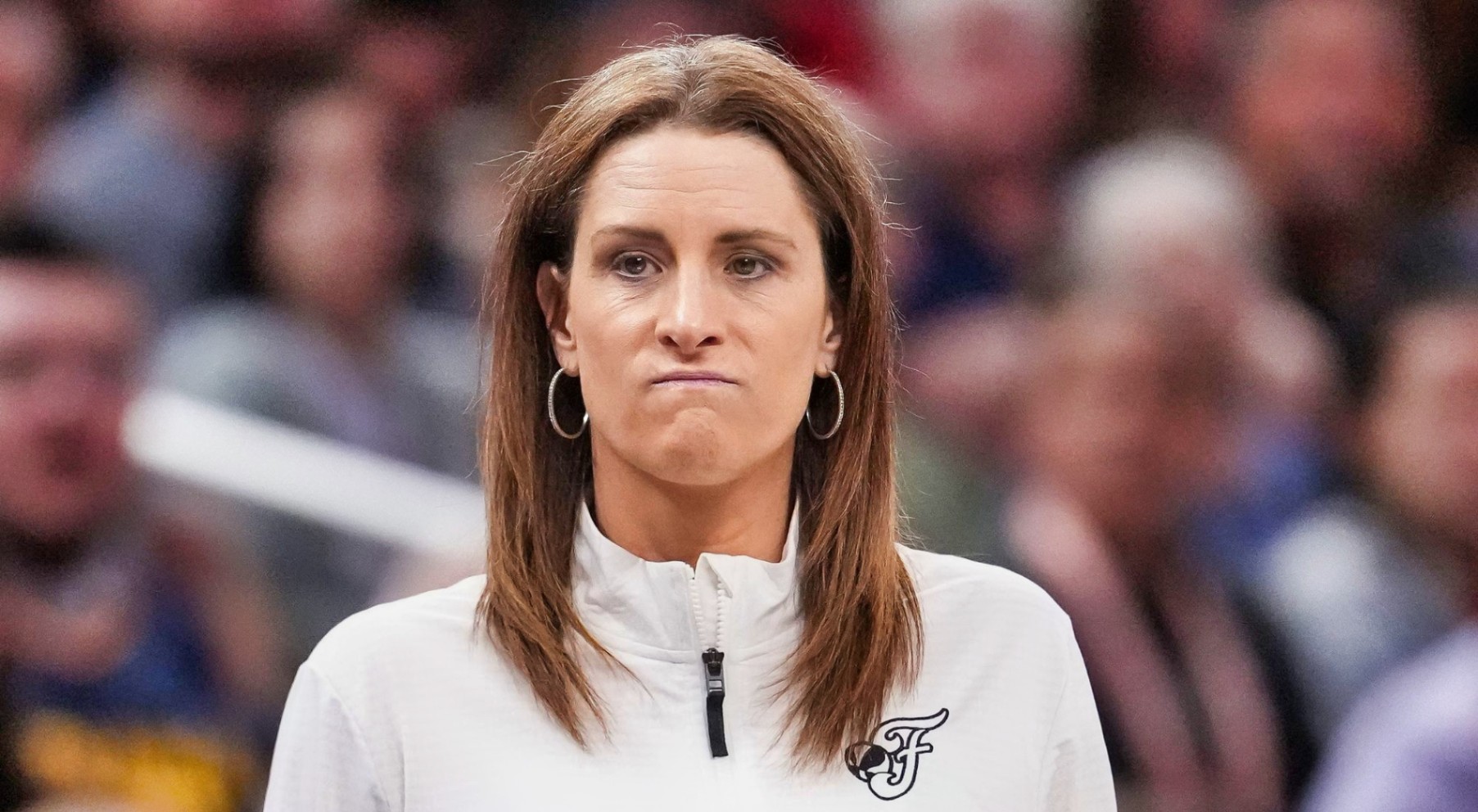

In a blistering two-minute segment on The Pat McAfee Show, former NFL standout turned broadcaster Pat McAfee unleashed a scathing critique of Chicago Sky forward Angel Reese, accusing her of “attacking” Indiana Fever rookie Caitlin Clark on the court—and then “playing the victim” when the tables turned. McAfee’s barbed commentary comes amid an already simmering feud between Reese and Clark, and his remarks have sent shockwaves through the WNBA community, drawing laughter, gasps—and renewed debate about sportsmanship, accountability, and the boundaries of “trash talk” in professional women’s basketball.
McAfee’s Lightning-Fast Roast
Cutting into his afternoon show with trademark energy, McAfee offered viewers a rapid-fire takedown:
“Angel, you launch that forearm like you’re in a WWE ring, then you clutch your chest like you’re in a Hallmark movie? That’s not badass—that’s bad acting!” McAfee quipped, the studio audience erupting in laughter.
“Stop acting like the victim when you’re the one swinging first. Caitlin Clark isn’t just your sparring partner—she’s the reason half these seats sold out!”
In just 120 seconds, McAfee managed to lampoon Reese’s physical fouls, her post-game complaints about “dirty play,” and her much-maligned attempts to draw sympathy—painting her as a player more interested in headlines than consistent performance.
The Feud That Sparked It All
To understand McAfee’s roast, one must revisit the series of contentious encounters between Reese and Clark:
Hard Fouls and Flagged Flagrant 1s: In back-to-back matchups this season, Reese delivered two overly aggressive hits—an elbow in the rib cage and a shoulder into the midsection—that forced the league to review her play, yet led to no suspensions.
Reese’s “Instant Regret” Moments: Each foul was immediately followed by viral highlight packages showing Reese’s own frustration as Clark shrugged off the contact and converted transition baskets.
Postgame Soundbites: After one such collision, Reese complained to reporters about Clark’s “cheap shots,” prompting fans to accuse her of deflecting blame from her own infractions.
The rivalry, once a footnote in preseason hype, has morphed into a focal point of the WNBA narrative—one that McAfee gleefully mined for comedic gold.
Fan Reaction: Hilarious or Harsh?
On social media, McAfee’s roast became an instant meme factory. #McAfeeMurder trended on X (formerly Twitter) as fans reposted his most cutting lines:
“Angel thought she was Conor McGregor—but got taken down by rookie Clark!” tweeted one viewer.
“Pat’s right—stop crying over your own hits and start playing better defense.”
“Caitlin gets clipped, shrugs, and scores? That’s a phenom. Angel’s just a frame-up.”
Even WNBA supporters who typically cheer for Reese conceded the roast’s accuracy. One Sky fan posted:
“I love Angel’s grit, but he’s right: she owes Clark an apology—on and off the court.”
Reese’s Camp Pushback
While there’s no public statement from Reese herself as of press time, sources close to the Sky indicate the team is “furious” at McAfee’s jabs. An assistant coach, speaking on condition of anonymity, told Fox News:
“We’re not gonna let some TV jester demean Angel’s style. She plays tough, she plays hard—that’s why we signed her. If McAfee has a problem, he can meet her on the court.”
Team management is reportedly evaluating whether to demand a retraction or escalate through league channels—though many expect Reese to take the high road in tomorrow’s shootaround.
League Office: No Official Word…Yet
The WNBA’s front office has maintained its typical neutrality. Commissioner Cathy Engelbert declined to comment on individual broadcasting jabs but reiterated the league’s commitment to both “hard-nosed competition” and “mutual respect.” A spokesperson added:
“We encourage robust debate about on-court play, but we also remind commentators that our players deserve professional consideration.”
League insiders suggest Engelbert’s team is monitoring how networks discuss WNBA storylines—this spat could influence future broadcast agreements and on-air talent guidelines.
Clark’s Grace Under Fire
True to form, Caitlin Clark has not responded directly to McAfee’s roast or Reese’s earlier complaints. In her postgame pressers, she focuses strictly on basketball:
“I’m here to compete, not create controversies. I let my play speak for me.”
Her silence only amplifies the contrast McAfee highlighted: when Clark takes a hit, she bounces back; when Reese swings first, she demands sympathy.
Cultural Impact: Women’s Sports in the Crosshairs
McAfee’s segment shines a light on a broader tension in women’s sports commentary: striking the right tone between humor and respect. As female athletes command record-breaking audiences, their every move—physical and verbal—is scrutinized by fans, media, and even male sports personalities.
“This debate is part of the league’s growing pains,” sports sociologist Dr. Karen Anderson told Fox News.
“We’re negotiating how we talk about female athletes—celebrating their toughness without diminishing their humanity.”
McAfee’s roast, while entertaining, raises questions: should commentators roam free to land any punchline, or must they balance wit with courtesy when discussing a sport still fighting for equal respect?
What’s Next: Rivalry Rematch
With the Fever and Sky set to meet again next week in Chicago, anticipation has never been higher. Will Reese channel her frustration into a dominant performance? Will Clark use the extra motivation to torch the Sky once more? And will McAfee have new material to roast?
“I’ll be watching,” McAfee teased on-air.
“Angel, bring your A-game—or I’ll be waiting.”
For WNBA fans, the rematch promises not just a battle of basketball styles, but a showdown of personalities—where every hard foul and every three-pointer carries the weight of this ever-escalating saga.
Final Take: Laughter and Legacy
Pat McAfee’s rapid-fire roasting of Angel Reese may be the latest viral moment, but it underscores a deeper narrative: the WNBA’s evolution into a mainstream force makes it fair game for all forms of commentary—from playful jabs to serious critique. How players like Reese and Clark respond—on and off the court—will shape perceptions of the league’s culture, toughness, and, ultimately, its enduring appeal.
One thing is certain: in the WNBA’s high-stakes theater, every elbow, every tweet, and every roast matters. And in this case, Pat McAfee’s microphone may have struck the most memorable blow yet.

